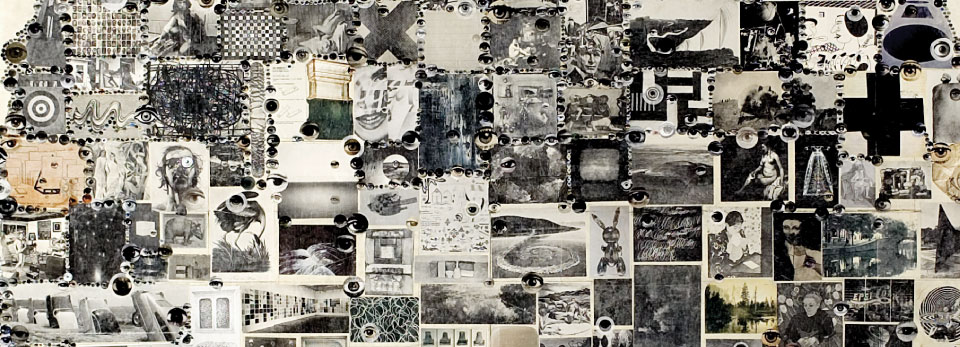

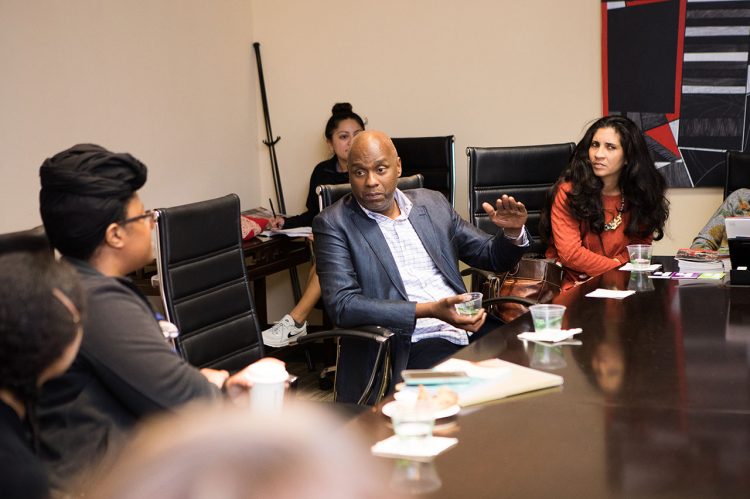
Cuban artist Roberto Diago met with students and faculty on Thursday, March 1, 2018, where they discussed subjects ranging from Cuba’s economy and Diago’s family history in the arts to the influence of the horrors of Boko Haram on his work.
Diago, whose visit precedes the conclusion of his exhibition “La historia recordada” at the Halsey Institute of Contemporary Art, welcomed questions from students and faculty alike during an intimate lunch. He cited the influence of Spanish artists on his art and responded in-depth to questions about the themes of racism in his work.
“Young people today can tap into new perspectives and ways of thinking, thanks to the internet and technology, but this was not the way of your parents and grandparents,” said Diago through an English translator, noting that the younger generation’s point of view gives him enormous hope that good things will happen, though progress may seem slow. “The future, that’s my work.”
READ THE FULL STORY [+]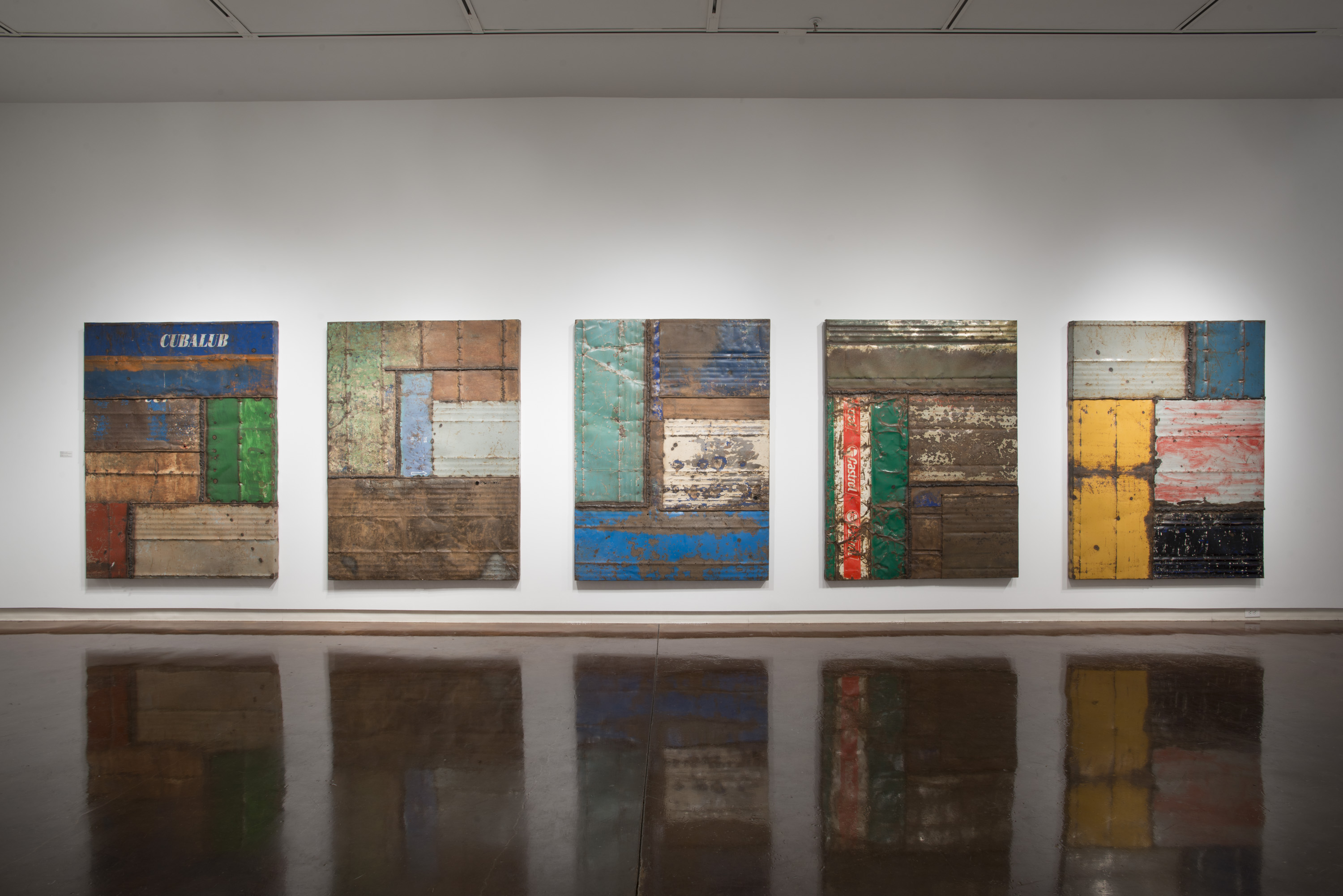
Cuban artist Roberto Diago will visit the College of Charleston March 1-3, 2018, ahead of the conclusion of his exhibition “La historia recordada” at the Halsey Institute of Contemporary Art.
Diago, whose work focuses on the roots and role of slavery in Cuban history, will hold a meet-and-greet for students and faculty from 11 a.m. to 1 p.m. on Thursday, March 1, 2018, in the Cato Center Conference Room. Then at 6 p.m. on Thursday, Diago will give a gallery talk on the “La historia recordada” exhibition at the Halsey, which will be free and open to the public. The exhibit is part of the College’s semester-long program Cuba en el Horizonte, which examines this island nation’s history, politics, economy, culture and art.
READ THE FULL STORY [+]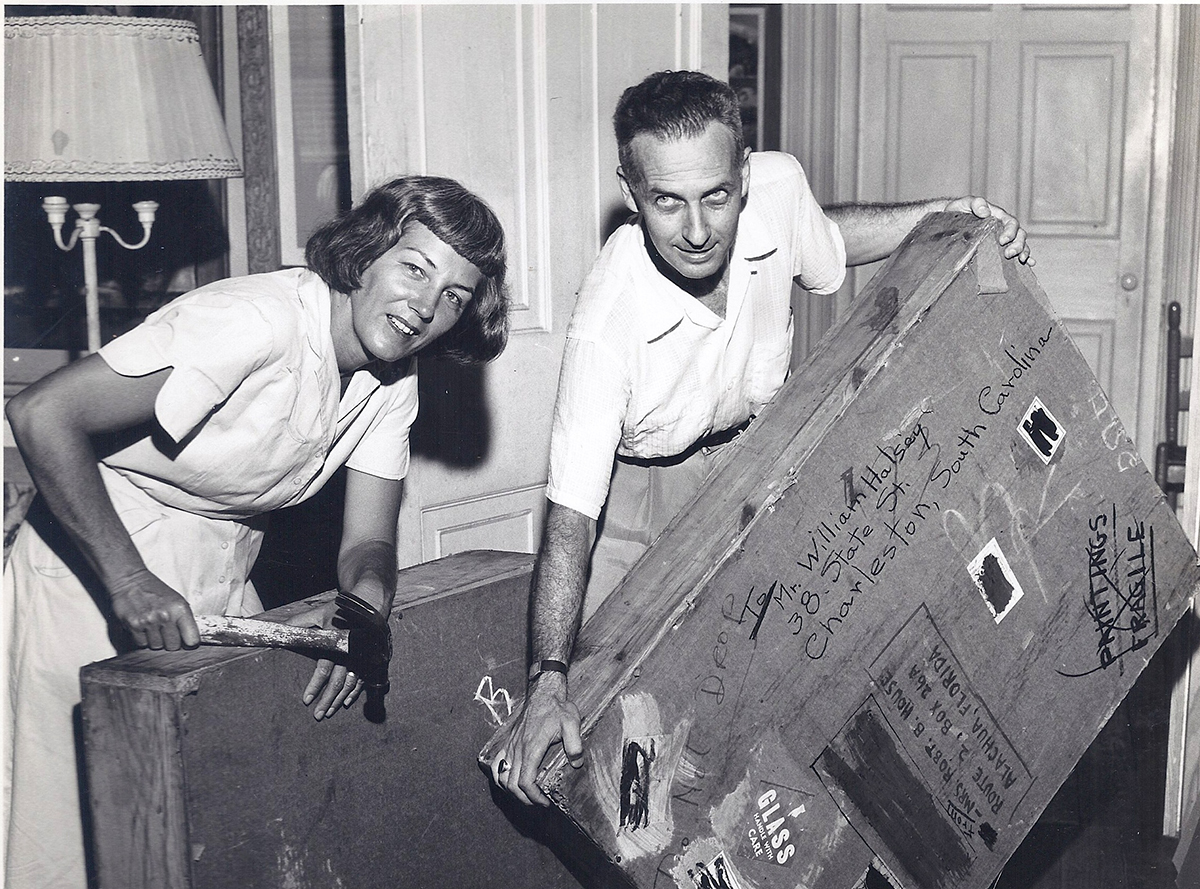
The Halsey Institute of Contemporary Art at the College of Charleston is proud to present A Halsey & McCallum Celebration on Wednesday, March 14 at 7 p.m. in the Recital Hall of the Simons Center for the Arts on the College of Charleston campus, 54 St. Philip Street. The event is free to attend for College of Charleston students and Halsey Institute members. Halsey Institute memberships begin at $40 for individuals, $20 for K-12 educators, and $17.70 for CofC students. Members receive a variety of stratified perks including discounts to local businesses, artworks, and events.
READ THE FULL STORY [+]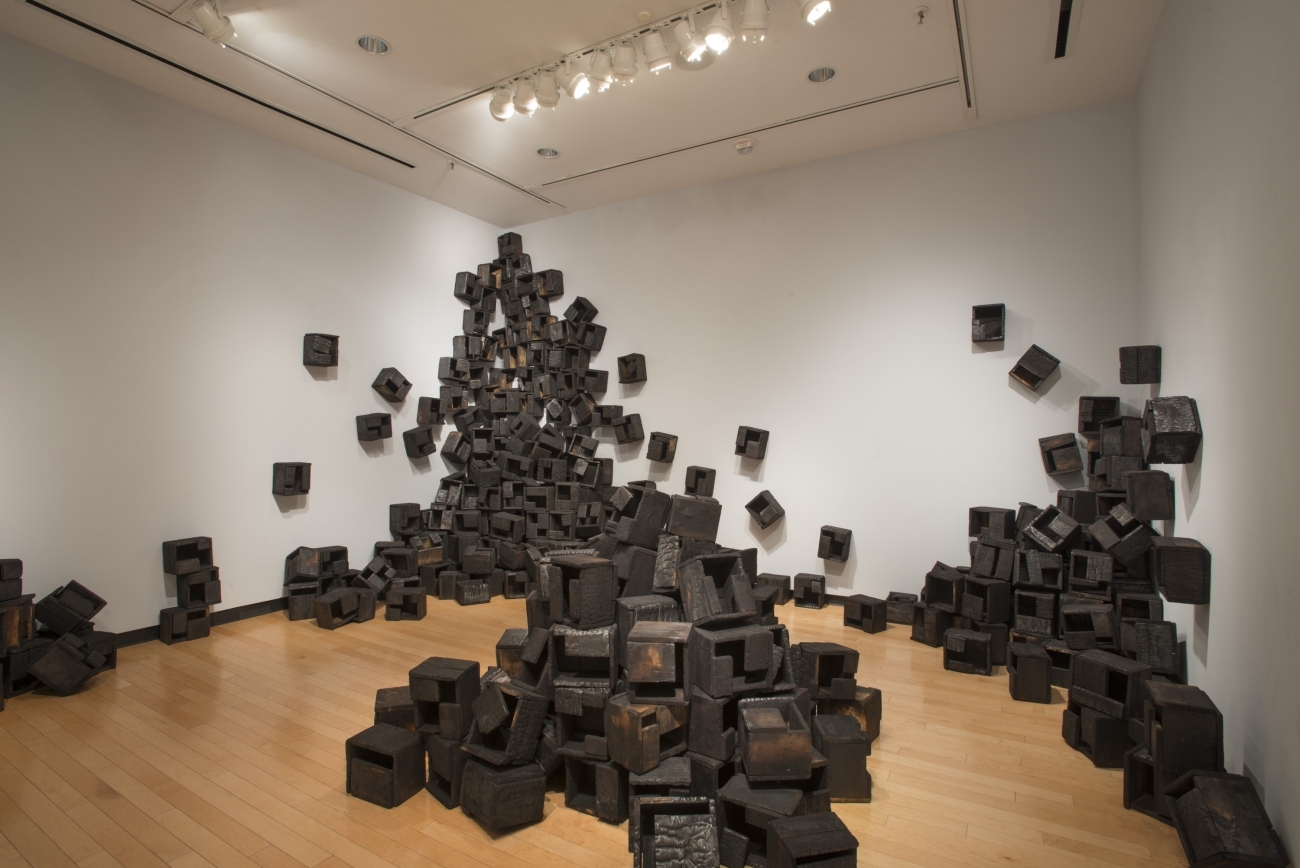
Big news Charleston — Afro-Cuban artist Roberto Diago, whose exhibit, La Historia Recordada is currently on display at the Halsey, is headed to the United States later this month. Getting Diago here from Cuba was no easy feat, so if you have the chance to come see or speak with the artist (political science professor Mark Long will assist with translating), you definitely should.
Diago will be creating a new installation when he’s in town, The Initials of the Earth, comprised of metal buckets, water, cartons, and canvas. He’ll be working in the gallery, and viewers are invited to witness him at work each day, some time during 11 a.m.-4 p.m., March 1-3. In addition to creating The Initials of the Earth, Diago will give a gallery talk and visit College of Charleston classrooms.
READ THE FULL STORY [+]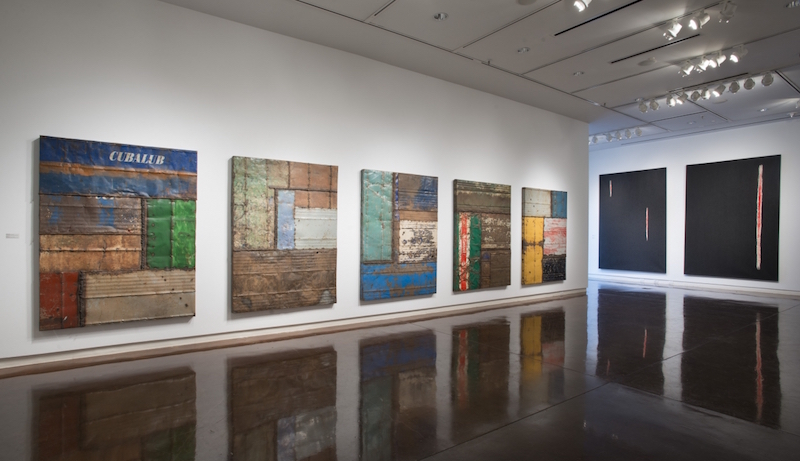
In this roundup of current shows, the Kremlin faces off against the White House, the lines form at MoMA, and a historical center of US slavery contemplates Afro-Cuban history. A master printmaker’s retrospective arrives in the US heartland, and a conceptual photographer journeys deeper into assemblage.
Roberto Diago: La Historia Recordada. Diago’s work has long addressed Afro-Cuban identity and the roots of slavery in Cuban society. Hosted by the Halsey Institute of Contemporary Art at the College of Charleston, South Carolina, his exhibition is the centerpiece of a broader, college-wide project that engages with Cuban culture, politics, and economics, exploring the common history of Cuba and the US South as plantation cultures built on slavery.

Halsey Talks, an ongoing series of roundtable discussion on intriguing concepts in art, are free and open to the public (like almost everything you’ll find at the Halsey Institute of Contemporary Art).
The Halsey’s next one, The Unknown Unknowns talk, will feature a discussion of the work of artists who either “locate our limit knowledge or try to break through them.” Attendees are encouraged to dig into a little pre-discussion reading, too, to help get the juices flowing. This reading list (which might expand), currently includes Errol Morris’ NYT opinion piece, “The Anosognosic’s Dilemma: Something’s Wrong but You’ll Never Know What It is (Part 1).”
READ THE FULL STORY [+]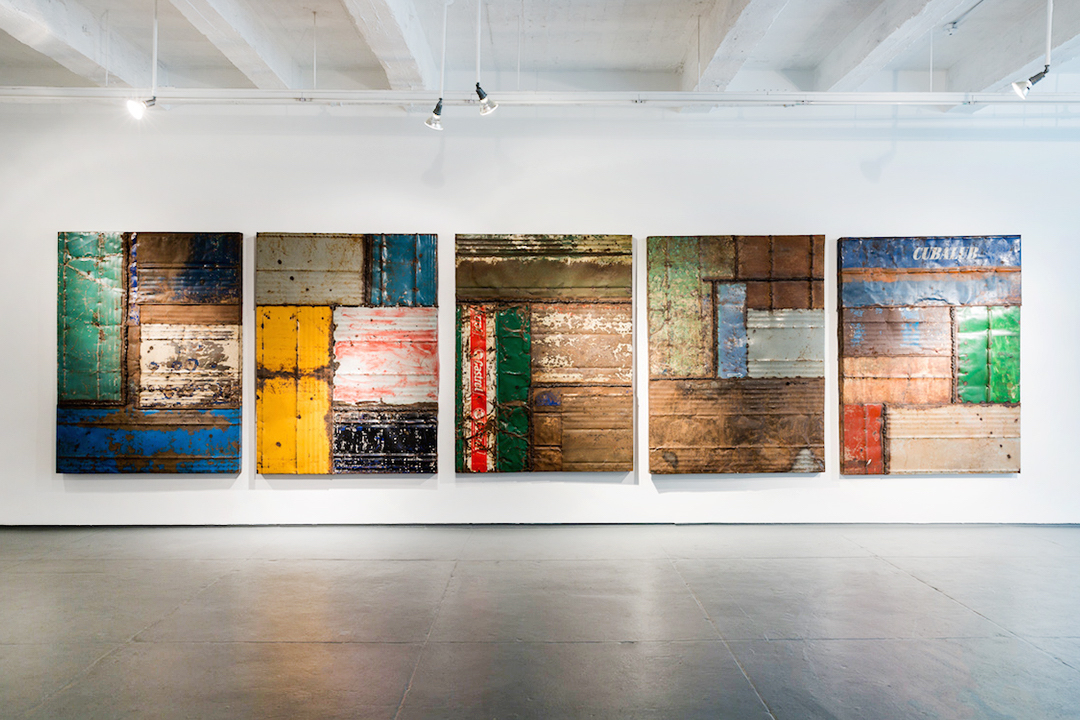
The Halsey Institute of Contemporary Art at the College of Charleston in Charleston, South Carolina, is proud to present a solo exhibition by Afro-Cuban artist Roberto Diago entitled La Historia Recordada. The exhibition will feature artworks, lectures, and films in addition to being connected with a larger college-wide program, Cuba en el Horizonte. The exhibition is on view from January 19 – March 3, 2018.
Roberto Diago’s work is often a direct criticism of racism in Cuba and explores the roots and role of slavery in Cuban history and culture. His work frequently contains found materials from neighborhoods in Havana near his home and studio. Raw materials such as wood, metal, and textiles make up much of his work — often these materials contain traces of their former uses, such as paint or building materials. Diago tracks a lineage of painterly abstraction and other forms in modern Cuban art, condensing them into a body of work that explores the vestiges of slavery and segregation in contemporary Cuban life. This exhibition is funded in part by a grant from the National Endowment for the Arts.
READ THE FULL STORY [+]
The work of Roberto Diago explores the roots and role of slavery in Cuban history and culture, offering a critical voice to the discourse on racism in Cuba. Exploring racism in Cuba—in what was formerly a plantation society—has generally been regarded as an act of resistance to the revolution, which ignored the issue in the interest of solidarity. But for Diago, as an Afro-Cuban artist, it cannot be ignored. Diago makes paintings and conceptual installations with found materials sourced from his neighborhood—bits of wood, plastic bottles, and rusty metals. These discarded materials are given new life and meaning by careful construction and juxtaposition, as Diago addresses both the visible and invisible strands of racial oppression in Cuba.
READ THE FULL STORY [+]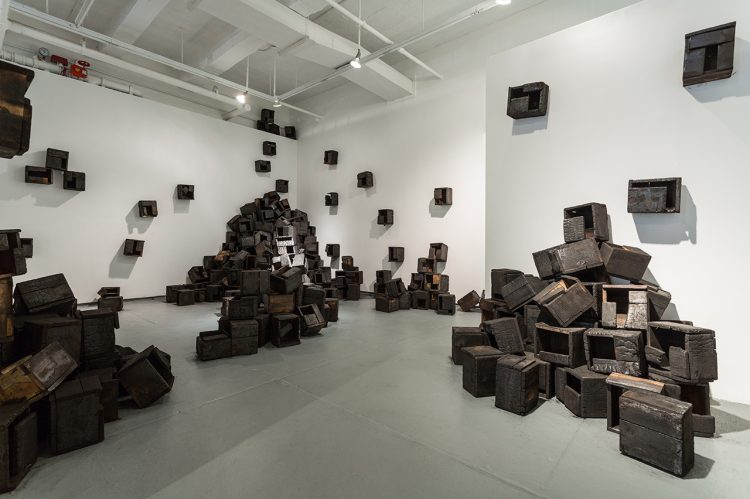
Focusing on something we’d rather discard and forget can be difficult, unforgiving work. But it’s work that is often necessary if we hope to overcome our demons and heal old wounds.
That’s why Cuban artist Roberto Diago chooses to focus his work on the roots and role of slavery in Cuban history. The Halsey Institute of Contemporary Art is presenting an exhibition of Diago’s work titled “La Historia Recordada,” which opens this Friday, Jan. 19, 2018, and runs through March 4, 2018. Rich, raw and textured, Diago’s paintings and conceptual installations are made with found materials from his neighborhood, including bits of wood, plastic bottles and rusty metals. The exhibit is part of the College’s semester-long program Cuba en el Horizonte, which examines this island nation’s history, politics, economy, culture and art.
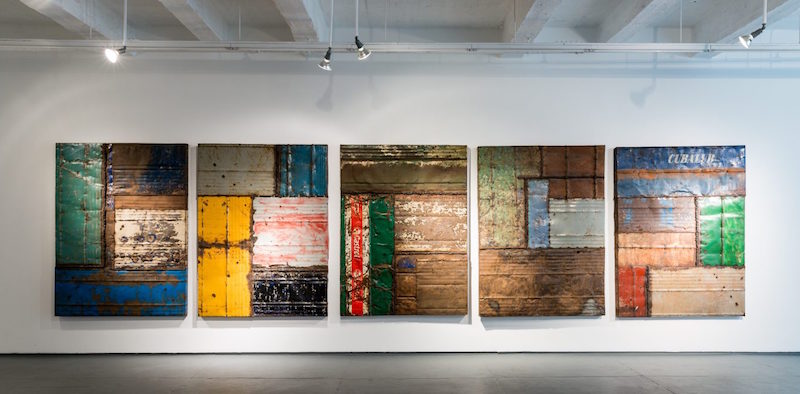
Here, we share stories that recently caught our eye—on Juan Roberto Diago, Memories of Underdevelopment, the jazz fest now going on in Havana, and more. 3 in English, 3 in Spanish, with excerpts in both languages.
Diago’s art caught the fancy of Tom Bradford and Susan Bass, a Charleston couple who traveled to Cuba in April 2015. Bass sits on the board of the Halsey and quickly brought Diago to the attention of Halsey director and chief curator Mark Sloan. . . .
“The art he had hanging in his house really spoke to all the slavery issues that he was trying to portray,” Bass said. Some of the abstract images were reminiscent of wounds and scars. “I felt it really spoke to Charleston; I just thought that there was such a great connection.” . . .
Charleston-area residents and visitors will have a chance to see Diago’s work, which will be exhibited Jan. 19 through March 3. The show, called “La Historia Recordada,” will feature art, lectures and films. It runs concurrently with the College of Charleston’s campus-wide project called “Cuba en el Horizonte” (“Cuba on the Horizon”), an interdisciplinary project that includes art shows, movie screenings, lectures, courses, newly penned essays and performances.